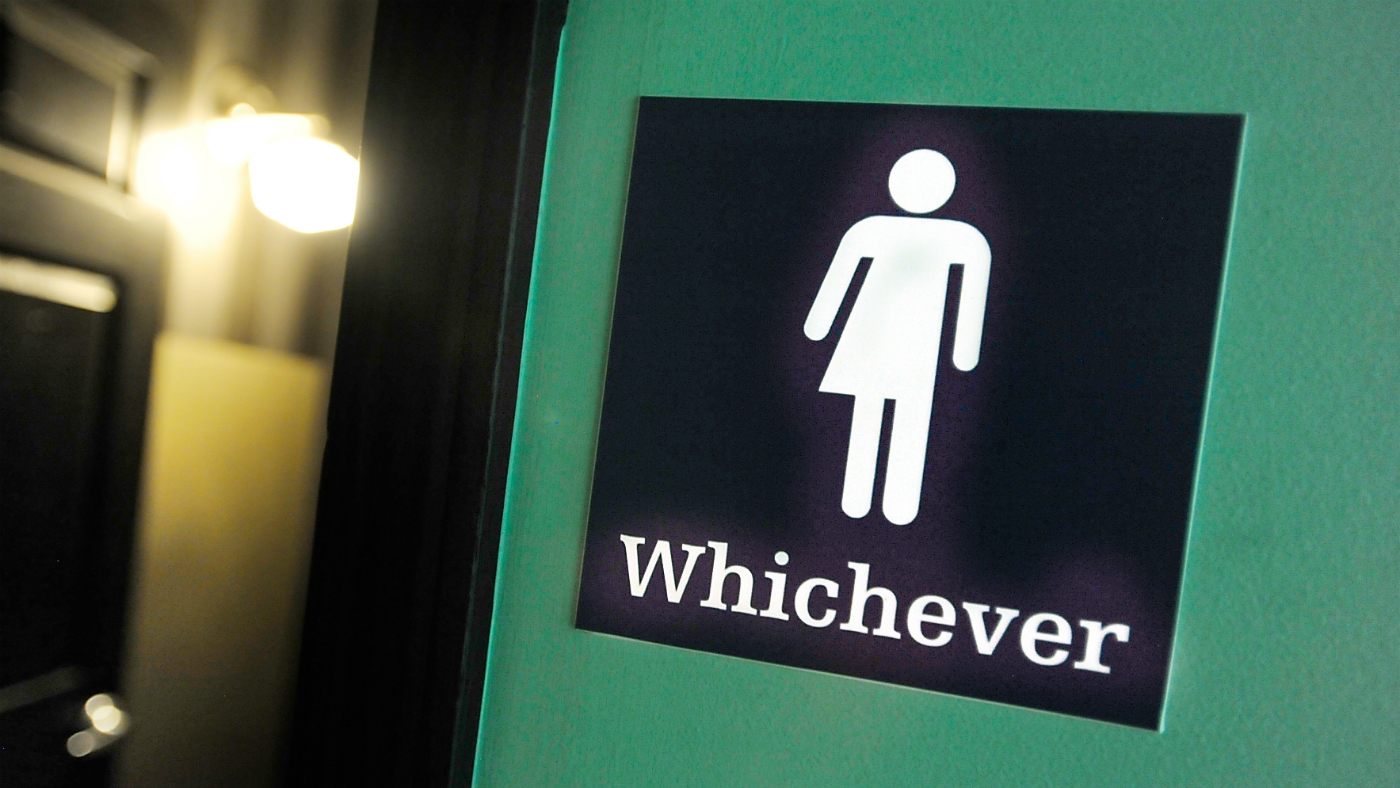Fact Check: The truth behind the North Carolina bathroom bill repeal
Are LGBT people better or worse off following the scrapping of House Bill 2? The Week finds out

A free daily email with the biggest news stories of the day – and the best features from TheWeek.com
You are now subscribed
Your newsletter sign-up was successful
North Carolina has repealed it's so-called "bathroom bill" restricting which toilet transgender people must use, but LGBT activists warn its replacement is just as harmful. What are the facts?
What is the bathroom bill?
House Bill 2, or HB2, ruled that people must use the toilet corresponding to the gender on their birth certificate and not the gender they identified with.
The Week
Escape your echo chamber. Get the facts behind the news, plus analysis from multiple perspectives.

Sign up for The Week's Free Newsletters
From our morning news briefing to a weekly Good News Newsletter, get the best of The Week delivered directly to your inbox.
From our morning news briefing to a weekly Good News Newsletter, get the best of The Week delivered directly to your inbox.
The law applied in all state-run buildings, including schools, libraries and government offices.
It also overturned local statutes protecting LGBT people from discrimination based on sexual orientation or gender identity.
Its introduction in March 2016 sparked fierce criticism from civil rights groups, as well as boycotts by businesses and sports leagues. Forbes estimates North Carolina lost at least $630m (£504m) between March and December as a result.
What's changed?
A free daily email with the biggest news stories of the day – and the best features from TheWeek.com
Following the demonstrations and boycotts, the bathroom bill was overturned last week and replaced with new legislation allowing trans people to use the bathroom of their choice.
However, says Reuters, "they lack any recourse should a person, business or state entity eject or harass them".
Crucially, schools and other local government entities are still barred from extending legal protections to LGBT people until 2020.
Vox highlights the fact that private businesses will be allowed to block trans people from toilets and local governments will be "powerless" to stop them.
Since North Carolina has no state-wide non-discrimination laws protecting LGBT people, "it will continue to be legal across much of the state for an employer to fire someone, a landlord to evict someone solely because of the person's sexual orientation or gender identity", it adds.
Who says what?
Backing for the change has come from new Democratic governor Roy Cooper, who said the original bill had been "a dark cloud" hanging over the state.
"It has stained our reputation, it has discriminated against our people and it has caused great economic harm in many of our communities," he added.
Republican Senator Thom Tillis also said he was glad North Carolina had reached a "common sense compromise".
However, the American Civil Liberties Union (ACLU) dismissed the deal as a "fake repeal", saying it left some of the most discriminatory parts of the original bill in place.
"Let us be clear, this is no compromise," it said. "This is no repeal. This is HB2.0 and is perhaps more insidious in its targeting of LGBTQ and particularly of trans and gender non-conforming people."
Cooper, who ran his campaign on a promise to fully repeal the bill, acknowledged that the new legislation was "not perfect" but maintained that it was step in the right direction.
Who's right?
The deal cannot be considered a full repeal because although transgender people are now able to access the public toilet of their choice, members of the LGBT community remain just as vulnerable to discrimination.
-
 The EU’s war on fast fashion
The EU’s war on fast fashionIn the Spotlight Bloc launches investigation into Shein over sale of weapons and ‘childlike’ sex dolls, alongside efforts to tax e-commerce giants and combat textile waste
-
 How to Get to Heaven from Belfast: a ‘highly entertaining ride’
How to Get to Heaven from Belfast: a ‘highly entertaining ride’The Week Recommends Mystery-comedy from the creator of Derry Girls should be ‘your new binge-watch’
-
 The 8 best TV shows of the 1960s
The 8 best TV shows of the 1960sThe standout shows of this decade take viewers from outer space to the Wild West
-
 Epstein files topple law CEO, roil UK government
Epstein files topple law CEO, roil UK governmentSpeed Read Peter Mandelson, Britain’s former ambassador to the US, is caught up in the scandal
-
 Iran and US prepare to meet after skirmishes
Iran and US prepare to meet after skirmishesSpeed Read The incident comes amid heightened tensions in the Middle East
-
 Israel retrieves final hostage’s body from Gaza
Israel retrieves final hostage’s body from GazaSpeed Read The 24-year-old police officer was killed during the initial Hamas attack
-
 China’s Xi targets top general in growing purge
China’s Xi targets top general in growing purgeSpeed Read Zhang Youxia is being investigated over ‘grave violations’ of the law
-
 Panama and Canada are negotiating over a crucial copper mine
Panama and Canada are negotiating over a crucial copper mineIn the Spotlight Panama is set to make a final decision on the mine this summer
-
 Why Greenland’s natural resources are nearly impossible to mine
Why Greenland’s natural resources are nearly impossible to mineThe Explainer The country’s natural landscape makes the task extremely difficult
-
 Iran cuts internet as protests escalate
Iran cuts internet as protests escalateSpeed Reada Government buildings across the country have been set on fire
-
 US nabs ‘shadow’ tanker claimed by Russia
US nabs ‘shadow’ tanker claimed by RussiaSpeed Read The ship was one of two vessels seized by the US military